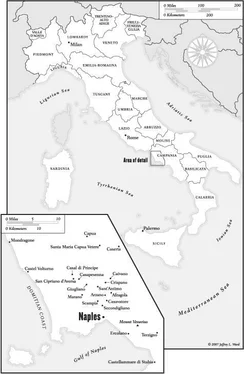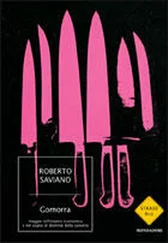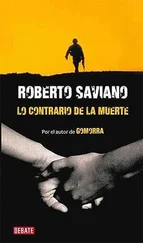Roberto Saviano - Gomorrah - A Personal Journey into the Violent International Empire of Naples’ Organized Crime System
Здесь есть возможность читать онлайн «Roberto Saviano - Gomorrah - A Personal Journey into the Violent International Empire of Naples’ Organized Crime System» весь текст электронной книги совершенно бесплатно (целиком полную версию без сокращений). В некоторых случаях можно слушать аудио, скачать через торрент в формате fb2 и присутствует краткое содержание. Жанр: Старинная литература, на английском языке. Описание произведения, (предисловие) а так же отзывы посетителей доступны на портале библиотеки ЛибКат.
- Название:Gomorrah: A Personal Journey into the Violent International Empire of Naples’ Organized Crime System
- Автор:
- Жанр:
- Год:неизвестен
- ISBN:нет данных
- Рейтинг книги:5 / 5. Голосов: 1
-
Избранное:Добавить в избранное
- Отзывы:
-
Ваша оценка:
- 100
- 1
- 2
- 3
- 4
- 5
Gomorrah: A Personal Journey into the Violent International Empire of Naples’ Organized Crime System: краткое содержание, описание и аннотация
Предлагаем к чтению аннотацию, описание, краткое содержание или предисловие (зависит от того, что написал сам автор книги «Gomorrah: A Personal Journey into the Violent International Empire of Naples’ Organized Crime System»). Если вы не нашли необходимую информацию о книге — напишите в комментариях, мы постараемся отыскать её.
Gomorrah: A Personal Journey into the Violent International Empire of Naples’ Organized Crime System — читать онлайн бесплатно полную книгу (весь текст) целиком
Ниже представлен текст книги, разбитый по страницам. Система сохранения места последней прочитанной страницы, позволяет с удобством читать онлайн бесплатно книгу «Gomorrah: A Personal Journey into the Violent International Empire of Naples’ Organized Crime System», без необходимости каждый раз заново искать на чём Вы остановились. Поставьте закладку, и сможете в любой момент перейти на страницу, на которой закончили чтение.
Интервал:
Закладка:
Don Peppino had studied in Rome, and that’s where he should have stayed to make a career for himself. Far from here, far from his hometown and its dirty deals. But, like someone who can’t shake off a memory, a habit, or a smell, he suddenly decided to return to Casal di Principe. Or maybe like someone with a burning itch to do something, and who can find no peace until he does it, or at least gives it a try. Don Peppino was the young priest of the Church of Saint Nicholas of Bari, a modern structure, the aesthetics of which seemed ideally suited to his sense of commitment. Unlike the other priests, who wore their gloomy authority along with their cassocks, he went around dressed in jeans. Don Peppino didn’t eavesdrop on family squabbles, chastise the men for their erotic escapades, or make the rounds comforting cuckolded women. He spontaneously transformed the role of the local priest, deciding to take an interest in the dynamics of power, and not merely its corollary suffering. He didn’t want merely to clean the wound but to understand the mechanisms of the metastasis, to prevent the cancer from spreading, to block the source of whatever was turning his home into a gold mine of capital with an abundance of cadavers. He even smoked a cigar in public every now and then. Anywhere else that might have seemed harmless, but around here priests tended to put on a show of depriving themselves of the superfluous, while indulging their lazy weaknesses behind closed doors. Don Peppino decided just to be himself—a guarantee of transparency in a land where faces must be ready to mime what they represent, aided by nicknames that pump their bodies full of the power they hope to suture onto their skin. Don Peppino was obsessed with action. He set up a welcome center to offer room and board to the first wave of African immigrants. It was important to welcome them to keep the clans from turning them into perfect soldiers— which is what eventually happened. He even contributed some of his own money from teaching to the project. Waiting for institutional backing can be such a slow and complicated ordeal that it becomes the biggest reason for doing nothing. As priest he had watched the succession of bosses, the elimination of Bardellino, the power of Sandokan and Cicciotto di Mezzanotte, the massacres among Bardellino’s men and the Casalesi, and then among the leading businessmen.
A famous episode from that time had involved a parade through the streets of town. It was about six in the evening when ten or so cars formed a sort of carousel under their enemies’ windows: Schiavone’s victorious men challenging the opposition. I was just a kid, but my cousins swear they saw them with their own eyes, driving slowly through the streets of San Cipriano, Casapesenna, and Casal di Principe, windows down, men straddling the doors, one leg in the car and the other dangling out. Faces unmasked, each holding an assault rifle. The cavalcade proceeded slowly, gathering more affiliates as it went; they came out of their apartments carrying rifles and semi-automatics and fell in behind the cars. A full-blown, public, armed demonstration. They stopped in front of the houses of their enemies, who had dared to challenge their supremacy.
“Come out, you shits! Come out … if you have the balls!”
The parade went on for at least an hour, continuing undisturbed as shutters on shops and bars were quickly lowered. For two days there was a complete cease-fire. No one went out, not even to buy bread. Don Peppino realized it was time to devise a plan of resistance. Time to openly delineate a path to follow. No more speaking out solo; it was time to organize a protest and coordinate a new level of local church engagement. He wrote a surprising document that was signed by all the Casal di Principe priests: a religious, Christian text with a tone of despairing human dignity that made his words universal and allowed them to reach beyond the boundaries of religion, causing the bosses to tremble; they feared the priest’s words more than an anti-Mafia division blitz, more than the impounding of their quarries and concrete mixers, more than the wiretaps that can trace a command to kill. It was a lively text with a romantically powerful title: “For love of my people I will not keep silent.” Don Peppino distributed the document on Christmas Day. He did not post it on his church doors; he wasn’t a Martin Luther out to reform the Roman Church. Don Peppino had other things to think about: to try to understand how to create a path that could sever the sinews of power and cripple the Camorra clans’ economic and criminal authority.
Don Peppino dug a path in the surface of the word and eroded their power with syntax; spoken publicly and clearly, words could still do such things. He lacked the intellectual apathy of those who believe that words have exhausted all their resources and merely fill the space between our ears. The word as concreteness, an aggregate of atoms that intervenes in the mechanisms of things, like mortar or a pickax. Don Peppino searched for the right word to dump like a bucket of water on the dirty looks he received. Around here keeping your mouth shut is not the simple, silent omertà of lowered hats and eyes. Here the prevailing attitude is “It’s not my problem.” But that’s not all. The decision to withdraw is the actual vote that’s cast in the election of the state of things. The word becomes a shout. A loud and piercing cry hurled at bulletproof glass in hopes of making it shatter.
We are powerless seeing so many families grieve as their sons miserably end up either victims or perpetrators of Camorra organizations … The Camorra today is a form of terrorism that arouses fear and imposes its own laws in an attempt to become an endemic element of Campania society. Weapons in hand, the Camorristi violently impose unacceptable rules: extortions that have turned our region into subsidized areas with no potential on their own for development; bribes of 20 percent or more on construction projects, which would discourage the most reckless businessman; illicit traffic in narcotics, whose use creates gangs of marginalized youngsters and unskilled workers at the beck and call of criminal organizations; clashes among factions that descend like a ruinous plague on the families of our region; negative examples for the entire teenage population, veritable laboratories of violence and organized crime.
Don Peppino’s aim was to remind people that, in the face of clan power, it was important not to confine their reactions to the silence of the confessional. He evoked the voices of the prophets to argue urgently that taking to the streets, reporting, and reacting were essential to give some sense to their lives.
Our prophetic commitment to speak out must not and cannot falter; God calls us to be prophets.
The Prophet is a watchman: he sees injustice and speaks out against it, recalling God’s original command (Ezekiel 3:16–19);
The Prophet remembers the past and uses it to gather up new things in the present (Isaiah 43);
The Prophet invites us to live, and himself lives in solidarity and suffering (Genesis 8:18–22);
The Prophet gives priority to the life of justice (Jeremiah 22:3; Isaiah 58).
We ask the priests—our shepherds and brethren—to speak clearly during the homilies and in all those occasions that require courageous witness. We ask the Church not to renounce its “prophetic” role so that the means for speaking out and declaring will result in the ability to create a new conscience under the sign of justice, an ethical and social solidarity.
The document did not aim to be amenable to social reality, nor polite toward political power, which it considered not merely supported by the clans but actually shaped by similar goals. Don Peppino didn’t want to believe the clan was an evil choice a person makes, but rather the result of clear conditions, fixed mechanisms, identifiable and gangrenous causes. No church or individual in this region had ever been so determined to clarify things.
Читать дальшеИнтервал:
Закладка:
Похожие книги на «Gomorrah: A Personal Journey into the Violent International Empire of Naples’ Organized Crime System»
Представляем Вашему вниманию похожие книги на «Gomorrah: A Personal Journey into the Violent International Empire of Naples’ Organized Crime System» списком для выбора. Мы отобрали схожую по названию и смыслу литературу в надежде предоставить читателям больше вариантов отыскать новые, интересные, ещё непрочитанные произведения.
Обсуждение, отзывы о книге «Gomorrah: A Personal Journey into the Violent International Empire of Naples’ Organized Crime System» и просто собственные мнения читателей. Оставьте ваши комментарии, напишите, что Вы думаете о произведении, его смысле или главных героях. Укажите что конкретно понравилось, а что нет, и почему Вы так считаете.












